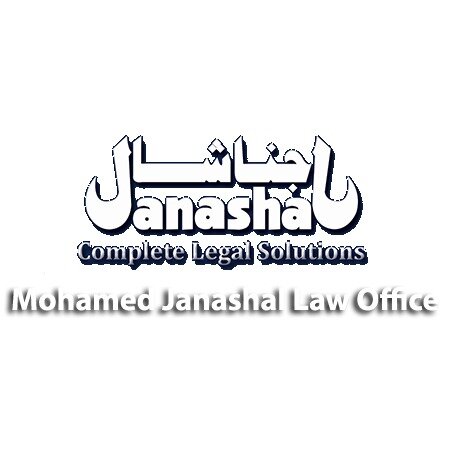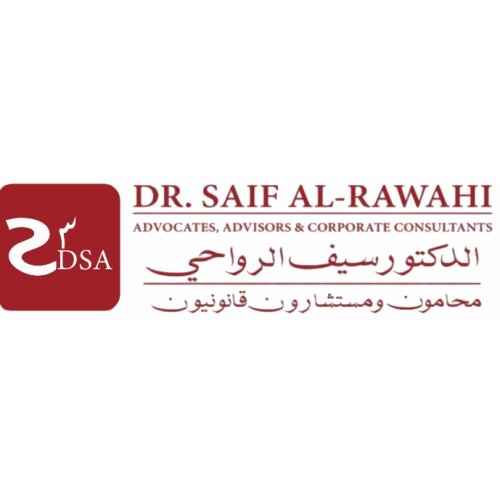Best Debt Capital Markets Lawyers in Muscat
Share your needs with us, get contacted by law firms.
Free. Takes 2 min.
List of the best lawyers in Muscat, Oman
About Debt Capital Markets Law in Muscat, Oman
Debt Capital Markets (DCM) are crucial components of the financial sector in Muscat, Oman. These markets allow corporations, banks, and government entities to raise funds by issuing debt instruments such as bonds, sukuk (Islamic bonds), and notes to institutional and sometimes retail investors. The DCM in Oman is regulated by a robust legal framework designed to ensure transparency, protect investor interests, and promote the stability of the financial system. As Oman positions itself as a regional financial hub, the DCM segment is becoming increasingly active and sophisticated, attracting both local and international market participants.
Why You May Need a Lawyer
Legal advice is highly recommended for anyone involved in Debt Capital Markets transactions in Muscat, Oman. Some common situations where you may require a lawyer include:
- Structuring and issuing debt instruments such as bonds or sukuk
- Drafting, negotiating, and reviewing transaction documents
- Ensuring compliance with regulatory requirements from government authorities
- Advising on the listing of debt securities on the local stock exchange
- Providing counsel to foreign investors entering Oman's debt markets
- Assisting with disclosure requirements and investor communications
- Resolving disputes or defaults involving debt instruments
- Advising on corporate governance matters and director responsibilities in relation to debt issuance
Navigating Oman's legal and regulatory landscape can be complex, and having specialized legal support ensures your interests are protected at every stage of a DCM transaction.
Local Laws Overview
Debt Capital Markets in Muscat are governed by several key laws and regulatory bodies:
- Capital Market Authority (CMA): The main regulatory authority overseeing debt market activities, issuances, and listings.
- Commercial Companies Law: Governs corporate entities wishing to raise capital via debt instruments.
- Securities Law: Outlines requirements for offering and trading securities in Oman, including disclosure, investor protection, and listing rules.
- Islamic Finance Regulations: Specific rules apply to the issuance of sukuk and other Sharia-compliant debt instruments.
- CMA Circulars and Guidelines: Supplementary regulations provided by the CMA guide market participants on compliance and best practices.
Key aspects include mandatory prospectus requirements, approvals for public offerings, ongoing disclosure obligations for issuers, and specific listing requirements for the Muscat Stock Exchange. Adherence to international standards regarding anti-money laundering and combating the financing of terrorism also forms a critical part of compliance in Oman's DCM space.
Frequently Asked Questions
What types of debt instruments can be issued in Muscat, Oman?
The most common instruments are conventional bonds, sukuk (Islamic bonds), commercial paper, and medium-term notes. Each has specific legal and regulatory requirements.
Is it mandatory to obtain regulatory approvals before issuing debt instruments?
Yes, issuances of public debt instruments such as bonds and sukuk require approval from the Capital Market Authority (CMA) and, where applicable, the Central Bank of Oman.
Can foreign entities issue debt securities in Oman?
Foreign entities can access Oman's Debt Capital Markets, subject to satisfying local legal, regulatory, and disclosure requirements, often requiring local legal representation.
What is the role of the Muscat Stock Exchange in DCM?
The Muscat Stock Exchange lists and facilitates the trading of debt securities. It enforces listing requirements and monitors ongoing disclosure and compliance by issuers.
Are there specific rules for Islamic (Sharia-compliant) debt issuances?
Yes, sukuk and other Islamic debt instruments are governed by both Islamic finance principles and additional regulations designed to ensure Sharia compliance.
What are the disclosure requirements for issuing a bond or sukuk?
Issuers must provide a detailed prospectus with financial data, risk factors, and specific information about the offer and the issuer. Ongoing disclosure to the market is also required.
What happens if an issuer defaults on a debt instrument?
Default procedures are handled according to the terms outlined in the bond or sukuk documentation, as well as applicable Omani insolvency and enforcement laws. Legal action may be necessary.
Are debt securities in Oman subject to tax?
Oman's current tax framework does not impose withholding tax on interest paid to non-residents, but tax consultation is recommended to understand potential corporate tax implications.
How long does it take to issue a debt security in Oman?
Timelines vary depending on the complexity and regulatory approval processes, but a straightforward issuance can take a few months from preparation to listing.
Do issuers need to appoint a trustee or agent?
For many types of debt instruments, especially those offered to the public or to multiple investors, appointing a trustee, paying agent, or both is a regulatory and market standard.
Additional Resources
For further guidance and official information, consider the following resources:
- Capital Market Authority (CMA) - Regulator for securities and debt transactions
- Central Bank of Oman - Supervises financial markets and certain debt instruments
- Muscat Stock Exchange - Listings and market rules for debt securities
- Ministry of Commerce, Industry and Investment Promotion - Corporate law and regulations
- Omani Bar Association - Directory of qualified legal professionals
- Local and regional accounting and auditing firms specializing in DCM compliance
Next Steps
If you require legal assistance in Debt Capital Markets in Muscat, Oman, start by identifying the nature of your transaction and potential legal issues. Reach out to qualified lawyers or law firms with expertise in DCM and financial regulations. Prepare all relevant documents and background information about your proposed transaction. It is also advisable to consult regulatory bodies such as the CMA or the Muscat Stock Exchange for procedural guidance. Engaging the right legal support early in the process helps ensure that your activities stay compliant, your interests are protected, and your transaction achieves its objectives smoothly.
Lawzana helps you find the best lawyers and law firms in Muscat through a curated and pre-screened list of qualified legal professionals. Our platform offers rankings and detailed profiles of attorneys and law firms, allowing you to compare based on practice areas, including Debt Capital Markets, experience, and client feedback.
Each profile includes a description of the firm's areas of practice, client reviews, team members and partners, year of establishment, spoken languages, office locations, contact information, social media presence, and any published articles or resources. Most firms on our platform speak English and are experienced in both local and international legal matters.
Get a quote from top-rated law firms in Muscat, Oman — quickly, securely, and without unnecessary hassle.
Disclaimer:
The information provided on this page is for general informational purposes only and does not constitute legal advice. While we strive to ensure the accuracy and relevance of the content, legal information may change over time, and interpretations of the law can vary. You should always consult with a qualified legal professional for advice specific to your situation.
We disclaim all liability for actions taken or not taken based on the content of this page. If you believe any information is incorrect or outdated, please contact us, and we will review and update it where appropriate.

















